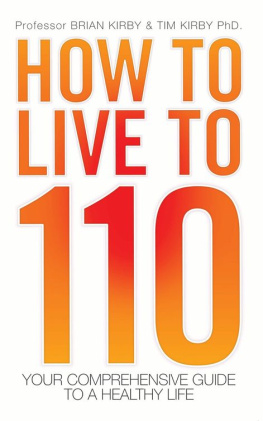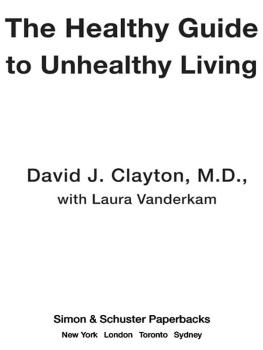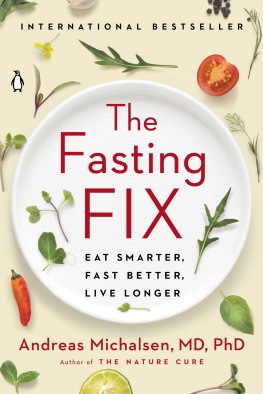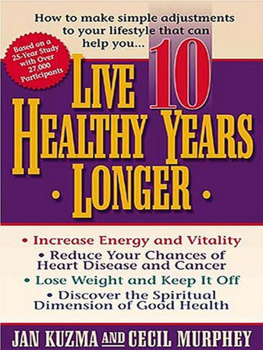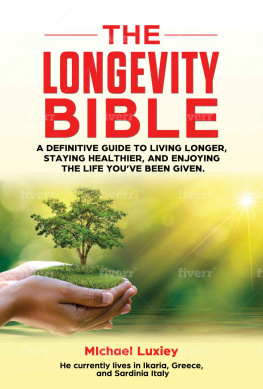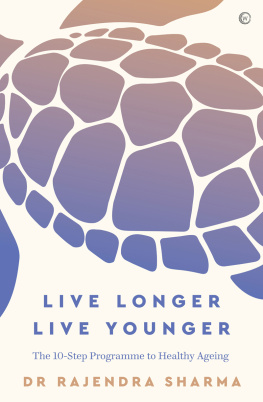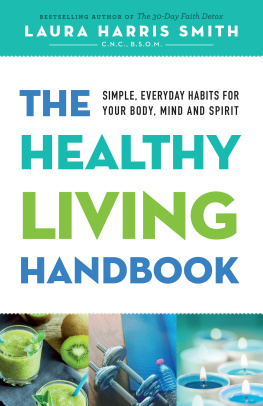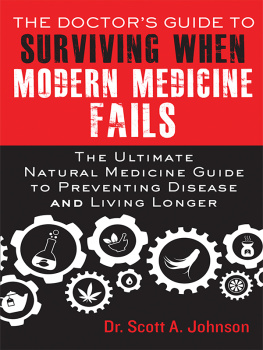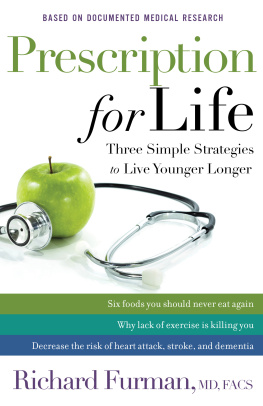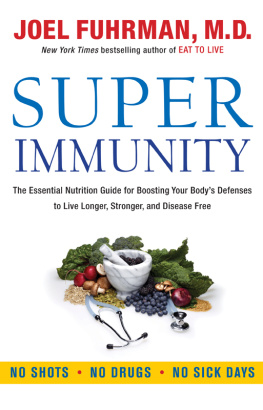This book is about giving you
- the best chance to increase the length of your life, and
- the best chance of being healthy, vigorous and clear-thinking in your later years.
Almost everyone can benefit from taking the steps we suggest, but the younger you are now, the greater the benefits you could gain.
This isnt just wishful thinking. It really is possible to make a difference to your life. Our suggestions are based on the most reliable scientific papers we could find. Indeed, you may be surprised at how much control you have over your health and lifespan, as well show you.
But you might be thinking Why would anyone want to live longer? Whats so great about ten or twenty extra years of being frail, ill and confused?
The point of our book is that old age neednt be like this if you look after yourself all through your life. Dont think of the extra years you might gain as being tagged onto the end. Think of them as extending your middle age. How would you like to have an extra ten or twenty healthy, vigorous years before you become frail, ill or confused? Imagine what you could do. And how would you like to avoid becoming frail, ill and confused altogether? Its a real possibility.
The old age illusion
Society labels us old by the time we reach 65. Thats when people retire from work and receive their old age pensions and senior citizen travel cards. Often, it is only a few years later that people begin to feel elderly and infirm. Many pass away before they are 80, often well before. No surprise, perhaps. Its natural, isnt it?
No, as it happens.
By and large, it is not old age itself that makes people ill and almost no one dies of old age. Older people are ill because they have one or more diseases , often a result of the typical Western lifestyle.
As we will show in the next chapter, around half of us cause our own early death.
Diseases can leave people weak, breathless, in pain, unable to move freely, or confused and forgetful. Apart from white hair and wrinkles, isnt that the common picture of old age?
It is largely an illusion that people are old at 65. Often what we see are the effects of common diseases that start to show up in our 50s and 60s and which then worsen and become disabling.
This book is about taking steps to avoid those diseases. If you succeed, when aged 65 you may still have more than a third of your life to come and those remaining years can be vigorous and full of health.
In fact, people who live beyond 100 can be in surprisingly good health clear-thinking , physically active and often independent. Many are healthier than most 70-year-olds: still socialising, taking up new hobbies and sometimes even working.
Some 90- and 100-year-olds achieve levels of fitness a 40-year-old would be proud of. A 100-year-old has completed a full marathon. There is even a class in international athletics championships for the over-100s, where the current world record for the 100 metre sprint is 30 seconds. That may not be as fast as Usain Bolt, but its pretty good for someone born before the First World War.
Even away from the sporting arena, very old people can be fit and healthy. In some of the communities around the world where high numbers of people live into their nineties and hundreds, researchers have noted how rare it is for people to need to visit a doctor.
Its worth investing in your health all your life
If you want to avoid the diseases of old age, you will need to spend some time looking after yourself throughout your life. This is a wise investment, with a potentially large payback. Its a lot like saving for your pension.
When you are young it probably seems dull and a bit of a distraction to put hard-earned money towards a pension. But the sooner you start saving and the more you invest, the more comfortable your later years will be.
The same might be said for your health, but with one big difference. Investing in your health improves your life now as well as in the future.
Ideally, the earlier you start the better. If you have children, you will be doing them a great service by encouraging them to look after their health. For example, childhood is the time to build the strong bones that are so important in old age, and to develop good, healthy habits. Children and teenagers need to avoid diabetes, which is sadly on the increase even in the young. Damage to blood vessels that can lead to heart disease many years later may already have started in teenagers and young adults.
But its never too late. Even in your seventies and beyond you can improve your chances.
Whatever age you are, and however unfit or overweight you might be, you should be able to make a significant impact on your health and lifespan. Some of the damage the Western lifestyle does to our bodies can be reversed, and future damage can be limited or prevented.
How long could you live?
So, if you manage to avoid the serious diseases we talk about in this book, how likely are you to live past 100?
Millions of children born this year will manage it. Across the Western world, the number of people living to 100 is rising fast. In 1911, just one hundred people in Britain were 100 or older. Now there are well over twelve thousand. According to government predictions, in 25 years time there will be 90,000 British people over 100 people who are currently in their mid-seventies and older. The number is expected to continue shooting upwards. The same is expected in the United States and Europe. Its happening even faster in Japan.
Why the dramatic increase? It is probably down to two factors: a lot of people have the natural potential to live that long; and better healthcare and social conditions are saving people from dying before their time.
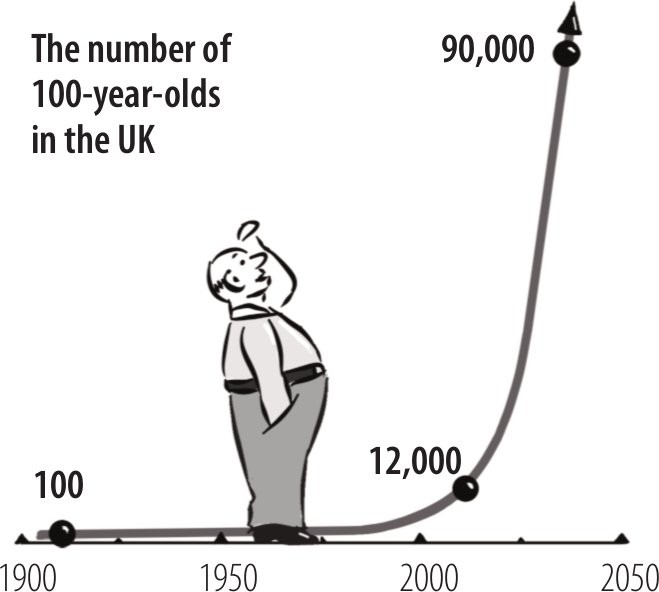
The number of people living past the age of 100 is increasing dramatically
Genes probably play a part. Very old age can run in families. But there are communities such as on the Japanese island of Okinawa where large numbers of unrelated people reach 100 and more. This means that living to a very old age cant just be down to genes, or maybe that the genes needed are actually quite common. It also suggests that lifestyle or environment may also be important.
It seems likely that vast numbers of us could live past 100, although scientists cant prove this until it happens.
What we can say for certain is that very many people could live a lot longer than they do.
And the maximum age a human can reach? Some scientists think that this is around 120 (see Interesting extras: How long can a human being live?, p).
Your choice
This book aims to help you become a supercentenarian someone who reaches their 110th birthday. If you look after yourself properly, and stay lucky, this is entirely possible for some readers.

